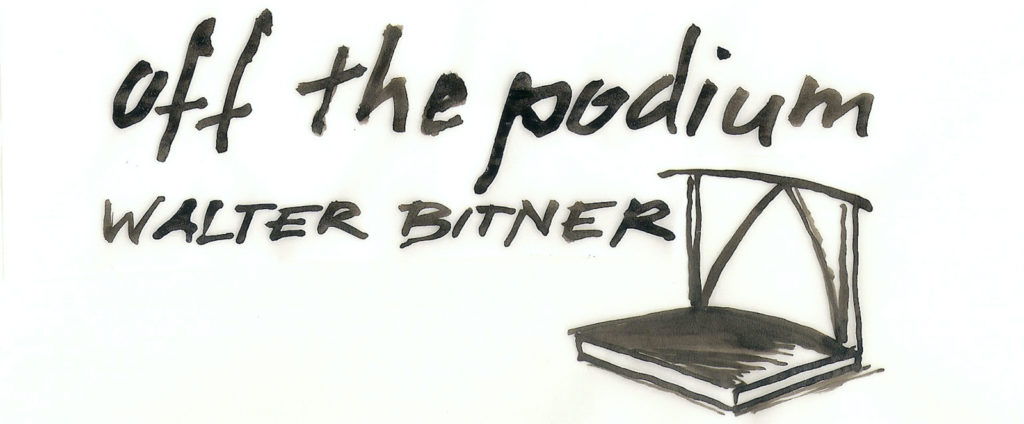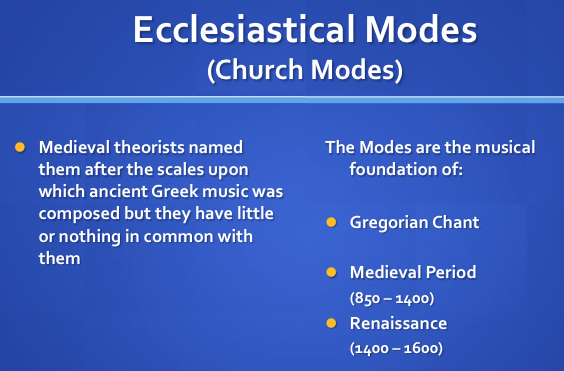
Solfège: Part 3: Teaching Music with Solfège
Solfège: Part 4
Teaching Modes with Solfège
Ecclesiastical (Church) Modes
In addition, students in the advanced choirs (both which primarily sang early music) were required to be able to sing the modes on solfège syllables.
- Ionian
- Dorian
- Phrygian
- Lydian
- Mixolydian
- Aeolian
Ionian Mode is identical to the Major scale. It is sometimes called a “major mode” because of the major third between the first and third scale degrees.
Dorian Mode is sometimes called a “minor mode” because of the minor third between the first and third scale degrees.
Phrygian Mode’s distinctive feature is a half-step between the first and second degrees of the scale.
“minor mode”
“Major mode”
“Major mode”
Aeolian Mode is identical to the natural minor scale.
“minor mode”
Locrian Mode was not used during the historical period but was adopted and is used by jazz musicians today. We did not sing Locrian Mode in class but advanced students were required to know it and be able to identify it.
Typically, at the end of this presentation (Part 3 & 4 of this series) I would distribute two pieces to my beginning/intermediate choirs and we would mark them together in class, with students experienced in the method helping those who were brand new. These two pieces were How Great Is The Pleasure which I included in Part 1 of this series, and Personent Hodie (below):

In my choir rehearsals at the beginning of each year, we sang all of the scales (and for advanced choirs, the scales and modes) detailed above at the beginning of every rehearsal as part of our warm-up, using D as the tonic. We sang every scale (and mode for advanced choirs) both ascending and descending. We did this every rehearsal until the choir could sing through all of them one after another with perfect intonation (usually within a couple weeks), and then for the remainder of the year I began the first rehearsal each week by running through them.
After working through the process of marking music with solfège syllables for the two pieces described above, for the rest of the year students would usually receive music to be marked at least one rehearsal before we would sing it in class, and were expected to bring it to the next rehearsal marked.
©2015 Walter Bitner
Walter Bitner is a multi-instrumentalist, singer, conductor, and teacher, and serves as Director of Education & Community Engagement for the Richmond Symphony in Richmond, Virginia. His column Off The Podium is featured in Choral Director magazine, and he writes about music and education on his website Off The Podium at walterbitner.com.













Leave a Reply
You must be logged in to post a comment.